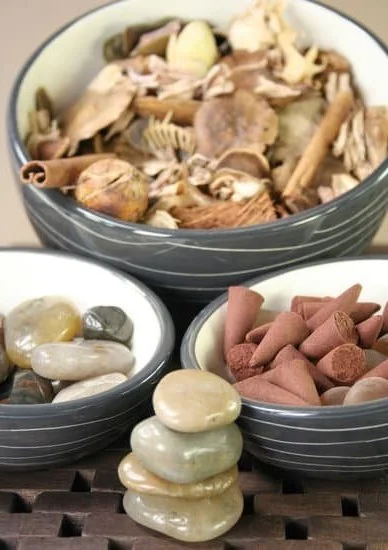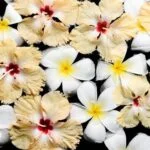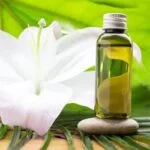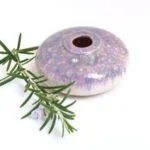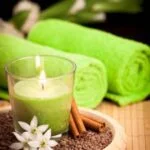Do aromatherapy diffusers attract mosquitoes? Aromatherapy has gained popularity for its various therapeutic benefits, but there has been some concern about whether the use of aromatherapy diffusers can attract mosquitoes. In this article, we will delve into the concept of aromatherapy and its benefits, explore the use of aromatherapy diffusers in both homes and public spaces, and examine the science behind how these diffusers work.
Aromatherapy is a holistic healing treatment that uses natural plant extracts to promote health and well-being. It can be used to improve physical, mental, and emotional health, and is often used for relaxation or as a complementary therapy alongside traditional medicine. Aromatherapy diffusers are devices that disperse essential oils into the air, allowing their aromatic molecules to be inhaled. These diffusers come in various forms, including ultrasonic, nebulizing, heat, and evaporative diffusers.
As the popularity of aromatherapy diffusers grows, so does the concern about whether they attract mosquitoes. In this article, we will address this myth and provide tips for using aromatherapy diffusers without attracting mosquitoes. Additionally, we will explore alternative natural insect repellents that can be used to keep bugs at bay without compromising the benefits of aromatherapy. Stay tuned as we debunk the myth and provide practical tips for using aromatherapy diffusers safely.
Exploring the Use of Aromatherapy Diffusers in Homes and Public Spaces
Aromatherapy diffusers have become increasingly popular in both homes and public spaces as a way to create a relaxing and inviting atmosphere. Whether it’s the calming scent of lavender or the uplifting aroma of citrus, diffusers are used to enhance mood, promote relaxation, and even improve mental clarity. In addition to their pleasant fragrance, many people also use aromatherapy diffusers for their potential health benefits, such as reducing stress and anxiety.
In homes, aromatherapy diffusers are commonly used in bedrooms, living rooms, and even home offices. Public spaces such as yoga studios, spas, and wellness centers also utilize diffusers to help create a serene environment for their clients. The versatility of diffusers allows for a wide range of essential oils to be used, catering to different preferences and purposes.
Using aromatherapy diffusers in public spaces has become more common as people seek out natural ways to enhance their well-being and create an inviting ambiance for guests or patrons. With the growing interest in holistic health practices, diffusers have found their place in various locations where individuals can benefit from the therapeutic effects of essential oils.
- Aromatherapy diffusers are used in homes and public spaces such as:
- Bedrooms
- Living rooms
- Home offices
- Yoga studios
- Spas
- Wellness centers
- The versatility of aromatherapy diffusers allows for the use of a wide range of essential oils:
- Lavender
- Citrus
- Peppermint
- Eucalyptus
- Tea tree oil
The Science Behind Aromatherapy and How Diffusers Work
Aromatherapy is the practice of using essential oils to promote physical and psychological well-being. These concentrated plant extracts are believed to have therapeutic properties when inhaled or applied to the skin. Aromatherapy diffusers are commonly used to disperse these essential oils into the air, allowing for easy inhalation and maximum benefit. But how exactly do these diffusers work, and what is the science behind aromatherapy?
How Aromatherapy Diffusers Work
There are several types of aromatherapy diffusers, including ultrasonic, nebulizing, heat, and evaporative diffusers. Ultrasonic diffusers use water and electrical vibrations to disperse essential oils as a fine mist into the air. Nebulizing diffusers disperse pure essential oil particles without adding water or heat. Heat diffusers use heat to evaporate the essential oils into the air, while evaporative diffusers use a fan to blow air through a pad or filter containing the essential oil.
The Science Behind Aromatherapy
When essential oils are released into the air through a diffuser, their molecules interact with our olfactory system – the part of our body responsible for our sense of smell. The molecules then travel through our nasal passages to our brain, where they can have profound effects on our emotions and overall well-being. Some essential oils have been shown to have antimicrobial and anti-inflammatory effects as well when inhaled or applied topically.
It’s important to note that not all claims about aromatherapy and its benefits are backed by scientific evidence, but many people report positive effects from using aromatherapy for stress relief, improved sleep, and relaxation. As with any form of alternative medicine, it’s crucial to consult with a healthcare professional before incorporating aromatherapy into your wellness routine.
Overall, understanding how different types of aromatherapy diffusers work can help individuals make informed choices about which one best suits their needs and preferences for enjoying the benefits of essential oils while maintaining a relaxing ambiance in their homes without attracting mosquitoes or other insects.
Debunking the Myth
Aromatherapy diffusers have become increasingly popular in homes and public spaces for their ability to create a calming and relaxing environment. However, there has been a common concern among users about whether these devices attract mosquitoes. Let’s debunk the myth and understand the relationship between aromatherapy diffusers and mosquitoes.
The concept of aromatherapy involves using essential oils to promote health and well-being. Aromatherapy diffusers are designed to disperse these oils into the air, allowing their scent to fill the room. Many people use diffusers for various purposes, including stress relief, improved sleep, and mood enhancement.
When it comes to debunking the myth that aromatherapy diffusers attract mosquitoes, it’s important to understand the science behind how these devices work. The primary function of a diffuser is to distribute the aroma of essential oils throughout a space. While the scent may be pleasant to humans, it does not necessarily attract mosquitoes. In fact, certain essential oils can act as natural insect repellents.
Here are some important points to consider when using aromatherapy diffusers in relation to mosquitoes:
- Essential oils such as citronella, lavender, eucalyptus, and peppermint are known for their insect-repelling properties.
- Using a blend of these oils in your diffuser can help deter mosquitoes while enjoying the benefits of aromatherapy.
- It’s important to use high-quality essential oils from reputable sources to ensure effectiveness and safety.
The Relationship Between Scents and Bugs
Aromatherapy has gained popularity for its ability to promote relaxation, reduce stress, and improve overall well-being. Many people use aromatherapy diffusers in their homes and public spaces to enjoy the benefits of essential oils. However, there is a common concern about whether these diffusers attract mosquitoes and other insects.
The idea that aromatherapy diffusers attract mosquitoes is a myth. Mosquitoes are actually attracted to carbon dioxide, body heat, and certain odors emitted by the human body. These insects use these factors to locate their hosts for a blood meal. The scents emitted by aromatherapy diffusers do not contain the compounds that specifically attract mosquitoes.
While essential oils used in aromatherapy diffusers may not necessarily attract mosquitoes, it’s important to note that some odors can still be appealing to other types of bugs. For example, floral scents such as lavender or rose may attract bees and other pollinators. Citrus scents like lemon or orange may also attract fruit flies. Understanding what attracts specific insects can help you make an informed decision when using aromatherapy diffusers in your home or outdoor spaces.
When using aromatherapy diffusers in areas where mosquitoes are present, it’s advisable to take extra precautions. There are specific essential oils like citronella, eucalyptus, peppermint, and lemongrass that have been traditionally used as natural insect repellents. If you want to enjoy the benefits of aromatherapy while keeping bugs at bay, using these essential oils in your diffuser can be an effective solution.
| Scents | Attracted Insects |
|---|---|
| Lavender | Bees |
| Lemon or Orange | Fruit Flies |
| Citronella, Eucalyptus, Peppermint, Lemongrass | Mosquitoes |
Tips for Using Aromatherapy Diffusers Without Attracting Mosquitoes
Aromatherapy diffusers are a popular way to enjoy the benefits of essential oils in both homes and public spaces. However, many people are concerned about whether or not these devices attract mosquitoes. While some may believe that the pleasant scents emitted by diffusers could potentially attract mosquitoes, the truth is that aromatherapy diffusers do not actually attract mosquitoes.
The misconception that aromatherapy diffusers attract mosquitoes may stem from the association between scents and insects. In reality, mosquitoes are attracted to certain scents, but the ones emitted by essential oils used in aromatherapy diffusers are not among them. These devices typically use essential oils such as citronella, lavender, eucalyptus, and peppermint, which actually have insect-repelling properties.
To further dispel the myth that aromatherapy diffusers attract mosquitoes, it’s important to understand what actually attracts these pests. Mosquitoes are drawn to carbon dioxide, body odor, heat, and certain chemicals found in sweat. They are also attracted to standing water and damp environments where they can lay their eggs. The scents emitted by aromatherapy diffusers do not mimic any of these factors that attract mosquitoes.
When using an aromatherapy diffuser in areas where mosquitoes are a concern, there are some simple tips to minimize any potential attraction of these insects. First and foremost, it’s important to keep the area well-ventilated so that the scent from the essential oils doesn’t linger excessively. Additionally, using essential oils known for their insect-repelling properties such as citronella or peppermint can help deter mosquitoes rather than attracting them.
Alternative Insect Repellents
When it comes to keeping insects away without using chemical-laden insect repellents, there are several natural options that can be just as effective. These alternatives not only provide relief from pesky bugs but also offer additional health benefits.
Essential Oils
One popular natural option for repelling mosquitoes and other insects is the use of essential oils. Certain essential oils, such as citronella, lavender, eucalyptus, and peppermint, are known for their insect-repelling properties. You can create your own DIY insect repellent spray by mixing a few drops of these essential oils with water or a carrier oil like coconut oil and spraying it onto your skin or clothing.
Citrus Peels
Citrus peels, such as those from lemons, oranges, and grapefruits, contain natural chemicals that repel insects. Simply take the peels and rub them on your skin or place them around outdoor areas to keep bugs at bay. Additionally, you can make a natural bug repellent by boiling citrus peels in water and using the resulting liquid in a spray bottle.
Herbs
Certain herbs like basil, mint, rosemary, and lemongrass have strong scents that naturally repel mosquitoes and other insects. Planting these herbs around your home or patio can help create a bug-free environment. You can also crush the leaves of these herbs and rub them on your skin for added protection against mosquitoes.
Conclusion
In conclusion, the debate over whether aromatherapy diffusers attract mosquitoes has been ongoing, with mixed opinions from experts and users alike. However, it is important to note that the use of aromatherapy diffusers does not necessarily mean an increase in mosquito presence. The key lies in being mindful of the scents used and taking precautions to avoid attracting unwanted bugs.
Aromatherapy diffusers can provide numerous benefits such as improving mood, reducing stress, and promoting relaxation. When used correctly, they can enhance the overall ambiance of a space without attracting mosquitoes. It is essential to choose essential oils with natural insect-repelling properties such as citronella, lavender, eucalyptus, or peppermint to enjoy the benefits of aromatherapy without worrying about bug infestations.
Furthermore, implementing additional measures such as using screens on windows and doors, eliminating standing water around the home, and keeping outdoor areas well-maintained can also help in deterring mosquitoes and other insects. By following these practical tips for using aromatherapy diffusers safely, individuals can continue to enjoy the therapeutic effects of essential oils while keeping bugs at bay.
Ultimately, with proper knowledge and precautions in place, it is possible to embrace aromatherapy without inviting unwanted pests into your living spaces.
Frequently Asked Questions
Do Essential Oil Diffusers Attract Bugs?
Essential oil diffusers do not inherently attract bugs. In fact, some essential oils can act as natural repellents for insects and bugs. However, certain scents may attract specific types of insects, so it’s important to be mindful of the oils you are using.
Do Essential Oils Actually Repel Bugs?
Yes, essential oils have been found to repel bugs effectively. Some popular choices for bug repellent include citronella, peppermint, lavender, and eucalyptus. These oils contain properties that insects find unpleasant, causing them to stay away from areas where the oils are present.
Will Essential Oil Diffuser Repel Mosquitoes?
Essential oil diffusers can help repel mosquitoes when using certain types of essential oils like citronella or lemongrass. These oils contain natural compounds that insects find unappealing and can be an effective way to keep mosquitoes at bay without the use of chemical-based repellents.

Are you looking for a natural way to improve your health and wellbeing?
If so, aromatherapy may be the answer for you.

